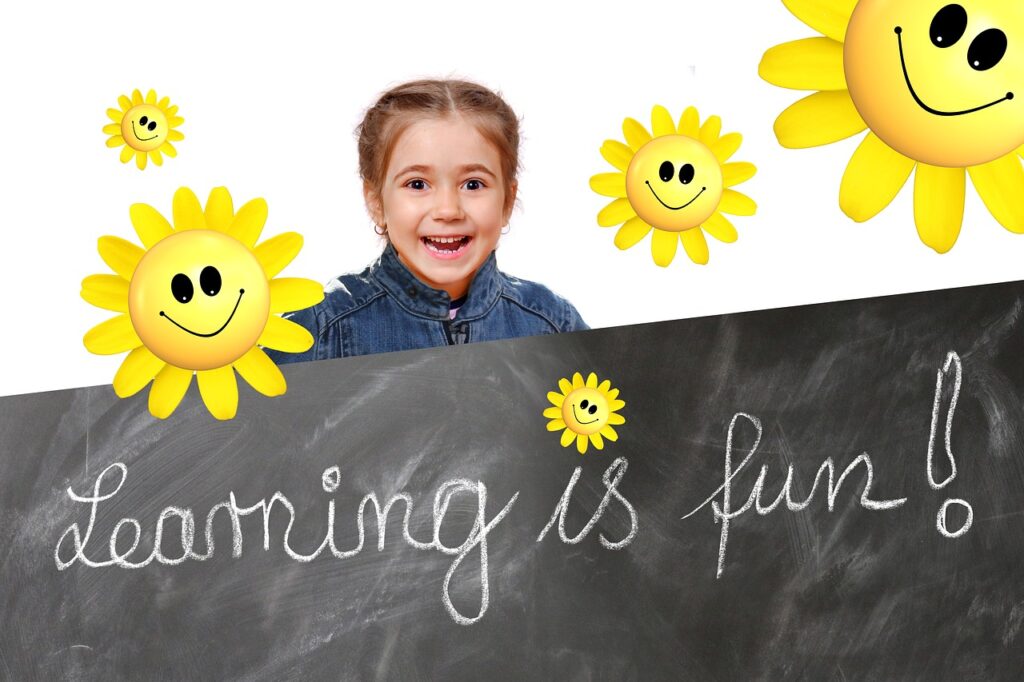
Early childhood education plays a critical role in a child’s cognitive, social, and emotional development. It lays the foundation for lifelong learning and success in academic and professional pursuits. Quality early education experiences have lasting positive effects on children’s overall well-being. Earning an Early Childhood Education degree is a popular education degree option.
Top Early Childhood Education Programs

Early Childhood Education Degrees from Eastern University
BS in Early Childhood Education, BS in Early Childhood Studies, Early Childhood Director Credential (Graduate),

Early Childhood Education Degrees from Liberty University
Associate in Early Childhood Education, BS in Early Childhood Education

Early Childhood Education Degrees from Regent University
B.Ed. in Early & Primary Education (Licensure Track), B.S. in Early Childhood Education (Nonlicensure)
Table of Contents
- Top Early Childhood Education Programs
- Growing Demand for Professionals in the Field
- Benefits of Pursuing an Early Childhood Education Degree
- Types of Early Childhood Education Degrees
- Online Early Childhood Education Degrees
- Licensing and Certification for Early Childhood Educators
- Career Opportunities in Early Childhood Education
- Financial Aid and Scholarships
Growing Demand for Professionals in the Field
As awareness of the importance of early childhood education increases, there is a growing demand for highly qualified professionals in the field. Educators with specialized training in early childhood education are essential for providing high-quality care and education to young children. The demand for skilled professionals in this field presents exciting opportunities for those considering a career in early childhood education.
Benefits of Pursuing an Early Childhood Education Degree
Pursuing an early childhood education degree equips individuals with the knowledge and skills necessary to create nurturing, effective learning environments for young children. Graduates of early childhood education programs are prepared to work in various settings, including preschools, childcare centers, and early intervention programs. Furthermore, earning a degree in early childhood education can lead to increased job security, career advancement, and personal fulfillment as you make a meaningful difference in the lives of young children.
Types of Early Childhood Education Degrees
Associate’s Degree in Early Childhood Education
An associate’s degree in early childhood education typically takes two years to complete and provides a foundational understanding of child development, teaching strategies, and classroom management. The program aims to prepare graduates for entry-level positions in the field, such as preschool teachers, childcare workers, and teacher aides.
Career Opportunities with an Associate’s Degree
Graduates with an associate’s degree in early childhood education can pursue various career opportunities, including preschool teacher, childcare worker, and teacher assistant. While the job responsibilities and salary may vary depending on the position, an associate’s degree offers a solid starting point for those beginning their career in early childhood education.
Bachelor’s Degree in Early Childhood Education
A bachelor’s degree in early childhood education typically takes four years to complete and offers more in-depth knowledge and training in the field. The curriculum covers topics such as child development, curriculum planning, assessment, and family engagement. Graduates of these programs are prepared for roles as lead teachers and administrators in various early childhood education settings.
Career Opportunities with a Bachelor’s Degree
With a bachelor’s degree in early childhood education, graduates can pursue careers as lead teachers, curriculum developers, childcare center directors, and special education teachers. These positions often come with increased responsibility and higher salaries compared to those with an associate’s degree.
Master’s Degree in Early Childhood Education
A master’s degree in early childhood education typically takes two to three years to complete and is designed for professionals seeking advanced knowledge and leadership skills in the field. The program focuses on specialized topics such as early childhood policy, advocacy, and research. Graduates are prepared for leadership roles in various early childhood education settings and can also pursue opportunities in higher education and research.
Career Opportunities with a Master’s Degree
Earning a master’s degree in early childhood education can lead to career opportunities such as early childhood education program administrator, curriculum specialist, early intervention specialist, and college instructor. These roles often involve greater responsibility and decision-making authority and may come with higher salaries compared to positions held by those with a bachelor’s degree.
Doctorate Degree in Early Childhood Education
A doctorate degree in early childhood education, such as a Ph.D. or Ed.D., typically takes three to five years to complete and is the highest academic achievement in the field. The program focuses on advanced research, policy analysis, and leadership development. Graduates are prepared for roles in academia, research, and top-level administration in early childhood education settings.
Career Opportunities with a Doctorate Degree
With a doctorate degree in early childhood education, graduates can pursue high-level career opportunities such as university professor, educational consultant, policy analyst, and executive director of early childhood education programs. These positions often come with significant influence and responsibility, as well as higher salaries compared to positions held by those with a master’s degree.

Online Early Childhood Education Degrees
Benefits of Pursuing an Online Early Childhood Education Degree
Online early childhood education degrees offer several benefits to students, including flexibility, affordability, and accessibility. Students can complete coursework at their own pace, making it easier to balance work, family, and other commitments. Additionally, online programs often have lower tuition costs compared to traditional on-campus programs. Finally, online education makes it possible for students in remote areas to access high-quality early childhood education degree programs without having to relocate.
How to Choose an Accredited Online Program
When choosing an online early childhood education degree program, it is crucial to select one that is accredited by a recognized accrediting agency. Accreditation ensures the program meets established quality standards, which can impact future employment and further education opportunities.
Tips for Success in Online Learning
Succeeding in online learning requires self-discipline, time management, and effective communication. Here are some tips to help you thrive in an online early childhood education degree program:
- Create a dedicated study space free from distractions.
- Establish a consistent study schedule and stick to it.
- Stay organized by using tools such as calendars, to-do lists, and file management systems.
- Participate actively in online discussions and group projects.
- Reach out to instructors and classmates for support and collaboration.
- Take advantage of available resources, such as tutoring services, academic advising, and career counseling.
- Stay motivated by setting short-term and long-term goals and celebrating your achievements.
Licensing and Certification for Early Childhood Educators
State-Specific Requirements for Licensure
Each state has its own requirements for licensure in early childhood education. Generally, licensure is required for public school teachers and may also be needed for some private school positions. Requirements vary, but common elements include obtaining a specific degree level (such as a bachelor’s or master’s degree), completing an approved teacher preparation program, passing state-mandated tests, and submitting to a background check. It is essential to research your state’s requirements to ensure you meet the necessary qualifications for licensure.
The Process of Becoming a Certified Early Childhood Educator
Becoming a certified early childhood educator typically involves the following steps:
- Complete an accredited early childhood education degree program. This may be at the associate’s, bachelor’s, or master’s level, depending on your state’s requirements.
- Gain classroom experience through student teaching or internships.
- Pass any required state-mandated tests, such as the Praxis exams, to demonstrate your knowledge and skills.
- Submit an application for licensure to your state’s Department of Education, including any required documentation and fees.
- Complete a background check, as required by your state.
Once you are granted licensure, you can begin working as a certified early childhood educator.
Continuing Education and Professional Development Opportunities
Continuing education and professional development are vital for early childhood educators to stay current with best practices, research, and policy changes. Many states require educators to complete ongoing professional development hours to maintain their licensure. Opportunities for continuing education include workshops, conferences, webinars, and online courses. Professional organizations, such as the National Association for the Education of Young Children (NAEYC) and the Council for Professional Recognition, offer resources and support for early childhood educators seeking professional development opportunities.

Career Opportunities in Early Childhood Education
Preschool Teachers
Preschool teachers work with children aged three to five years, focusing on their cognitive, social, emotional, and physical development. They plan and implement age-appropriate activities, assess children’s progress, and communicate with parents about their child’s development. Preschool teachers can work in public and private schools, childcare centers, and Head Start programs.
Childcare Center Directors
Childcare center directors are responsible for overseeing the daily operations of childcare facilities, such as preschools, daycares, and after-school programs. They manage staff, develop and implement educational programs, ensure compliance with regulations, and communicate with parents and the community. A bachelor’s degree or higher in early childhood education and experience working with young children is typically required for this role.
Early Intervention Specialists
Early intervention specialists work with infants and young children who have developmental delays or disabilities. They assess children’s needs, develop individualized plans, and collaborate with families and other professionals to provide appropriate services and support. Early intervention specialists may work in schools, homes, or community-based settings. A degree in early childhood education, special education, or a related field is often required.
Curriculum Developers
Curriculum developers create educational materials and programs for early childhood education settings. They research and develop age-appropriate learning experiences, align curricula with educational standards, and provide support and training to educators. Curriculum developers may work for educational publishers, school districts, or childcare centers. A bachelor’s degree or higher in early childhood education and experience in the field are typically required.
Early Childhood Education Consultants
Early childhood education consultants provide guidance and support to childcare centers, schools, and other organizations serving young children. They may specialize in areas such as curriculum development, program evaluation, or professional development. Consultants assess the effectiveness of programs and services, provide recommendations for improvement, and assist with implementing changes. A degree in early childhood education and relevant experience are generally required for this role.
Financial Aid and Scholarships
Types of Financial Aid Available for Early Childhood Education Degree Programs
Various types of financial aid are available to help fund early childhood education degree programs. These include:
- Federal grants, such as the Pell Grant, which provide funding that does not need to be repaid.
- State grants and scholarships, which are typically based on financial need, academic achievement, or other criteria.
- Institutional scholarships, awarded by colleges and universities, based on factors such as merit, need, or specific interests.
- Private scholarships, funded by organizations or individuals, which may have varying eligibility requirements and application processes.
- Federal and private student loans, which must be repaid with interest.
- Work-study programs, providing part-time employment opportunities to help pay for education expenses.
Tips for Finding and Applying for Scholarships
Finding and applying for scholarships can be a challenging but rewarding process. Here are some tips to help you navigate the process:
- Start your search early to ensure you have ample time to meet application deadlines.
- Research scholarships specific to your field of study, such as early childhood education, as well as general scholarships.
- Use reputable scholarship search engines and databases, such as Fastweb, Scholarships.com, and the U.S. Department of Labor’s Scholarship Finder.
- Pay attention to eligibility requirements and application instructions, ensuring you submit all necessary materials on time.
- Write a strong personal statement or essay, highlighting your passion for early childhood education and your career goals.
- Reach out to your school’s financial aid office for assistance and resources.
Resources for Financial Aid Assistance
There are several resources available to help you navigate the financial aid process, including:
- The Federal Student Aid website (FAFSA.ed.gov), which provides information on federal financial aid programs, eligibility, and application procedures.
- Your state’s Department of Education website, which may offer information on state-specific financial aid programs and resources.
- Professional organizations, such as the National Association for the Education of Young Children (NAEYC) and the Council for Professional Recognition, which may provide scholarships and financial aid resources for early childhood education students.
- College and university financial aid offices, which can help you understand and apply for financial aid opportunities available at your institution.
Value of an Early Childhood Education Degree
Investing in an early childhood education degree is a valuable step toward a fulfilling career, positively impacting the lives of young children and their families. With a variety of degree options and career paths, this field offers many opportunities for growth, personal satisfaction, and professional advancement. An early childhood education degree can open doors to a variety of rewarding positions, providing meaningful contributions to the development and well-being of young children. By pursuing an early childhood education degree, you can make a lasting impact on the lives of young children, their families, and the communities they live in, while also experiencing both personal growth and professional growth.
